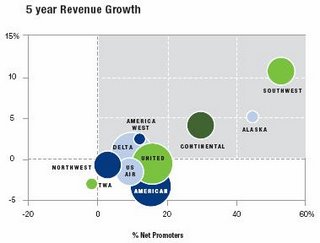PS: Your Cat Is Dead
Tim Walters at Fatwire writes: No need to call the RSPCA: the title comes from a novel (later a play and a film) written by James Kirkwood.
No need to call the RSPCA: the title comes from a novel (later a play and a film) written by James Kirkwood.
It’s also a reference to my March 27 blog entry on the similarity between faithful kittens and loyal travel consumers. I claimed that contrary to the widespread view that the internet undermines customer loyalty, “the wealth of information about options and alternatives easily available on the web in effect makes genuine customer loyalty possible for the first time”.
But according to a presentation by Forrester Research travel industry analyst Henry H. Harteveldt, this claim is somewhere between half-right and quaintly obsolete. In an April webinar with the great title – It Doesn’t Have To Suck: Making Web Travel Planning Better – Harteveldt and Suzanne Cook argued that loyalty should no longer be understood as “owning” a customer (like the cat that returns faithfully to your porch every morning).
One of the reasons they gave is that the “abundances of choices” – awareness of which is magnified by the internet – “makes loyalty unnecessary” and further denigrates the value customers place on being loyal to a supplier.
The time and money invested in travel industry “loyalty programs” is, in this view, usually aimed at the wrong target. The real goal is not loyalty but advocacy – not a customer who will (perhaps, but don’t count on it) return to your brand or service but rather one that will actively recommend and promote your products to a potentially huge (because ever expanding) community of future customers.
Loyalty – if that’s what it should still be called – is effectively an exercise in viral marketing. Except that instead of unemployed actors praising the latest banana flavored vodka in a crowded bar, this viral marketing is genuine.
It’s also likely to be directed at friends or colleagues – and therefore more likely to be accepted as trustworthy and more likely to compel action.
So far, so obvious – everybody knows that it’s a good idea to have happy customers. (And yet so many don’t do enough to deserve them – witness Neil Stiles’ Devon experience)
But it turns out that the stakes are much higher than just achieving positive “word of mouth.” Satmetrix and loyalty guru Frederick Reichheld of Bain & Company have developed the notion of a “Net Promoter” ranking – basically the percentage of promoters minus the percentage of detractors in a given customer community. As this graph from the Satmetrix website shows, there can be a remarkable correlation between the Net Promoter score and business growth.
As this graph from the Satmetrix website shows, there can be a remarkable correlation between the Net Promoter score and business growth.
In short, loyalty is not so much about your customers as about your future would-be customers. (Thus Reichheld’s related notion of how the “bad profits” obtained from today’s disaffected customers undermine tomorrow’s success)
A loyalty program isn’t (or shouldn’t be) about trying to retain what you have – it’s about creating an environment in which you can gain what you don’t yet have – and then ensuring that this future comes into being. Which, as it happens, is not far from Immanuel Kant’s definition of a promise.
PS: If you did call the RSPCA, they’d likely send out a field rep with the help of their FatWire-based web content and knowledge management system.
PPS: John Simon’s review of the one New York production of “PS: Your Cat Is Dead” carried the title, “PPS: So Is Your Play”.
[That's enough PSs - Ed]
Tim Walters, director international marketing and strategy, FatWire Software


No comments:
Post a Comment